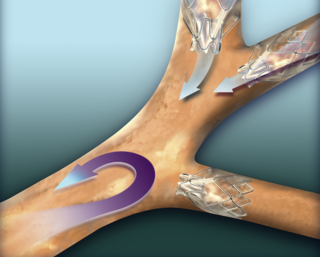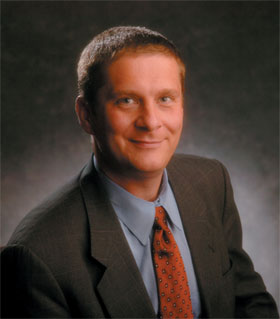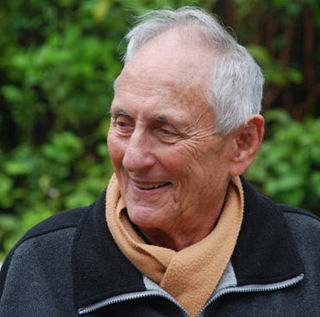
Plastic surgery is a surgical specialty involving the restoration, reconstruction, or alteration of the human body. It can be divided into two main categories: reconstructive surgery and cosmetic surgery. Reconstructive surgery includes craniofacial surgery, hand surgery, microsurgery, and the treatment of burns. While reconstructive surgery aims to reconstruct a part of the body or improve its functioning, cosmetic surgery aims at improving the appearance of it.

Cardiothoracic surgery is the field of medicine involved in surgical treatment of organs inside the thoracic cavity — generally treatment of conditions of the heart, lungs, and other pleural or mediastinal structures.

Microsurgery is a general term for surgery requiring an operating microscope. The most obvious developments have been procedures developed to allow anastomosis of successively smaller blood vessels and nerves which have allowed transfer of tissue from one part of the body to another and re-attachment of severed parts. Microsurgical techniques are utilized by several specialties today, such as general surgery, ophthalmology, orthopedic surgery, gynecological surgery, otolaryngology, neurosurgery, oral and maxillofacial surgery, plastic surgery, podiatric surgery and pediatric surgery.

Ethicon, Inc. is a subsidiary of Johnson & Johnson. It was incorporated as a separate company under the Johnson & Johnson umbrella in 1949 to expand and diversify the Johnson & Johnson product line.

Donald R. Laub Sr. is an American retired plastic surgeon and founder of Interplast, which led multidisciplinary teams on reconstructive surgery missions to developing countries.
Harry J. Buncke was an American plastic surgeon who has been called "The Father of Microsurgery" for his contributions in the history and development of reconstructive microsurgical procedures. He is a past president of the American Society for Surgery of the Hand, the International Society of Reconstructive Microsurgery, and the American Association of Plastic Surgery. He served as a clinical professor of surgery at both Stanford University and the University of California - San Francisco. He was the author of 15 movies and television tapes, four surgical textbooks, and more than 400 peer-reviewed publications.

An endobronchial valve(EBV), is a small, one-way valve, which may be implanted in an airway feeding the lung or part of lung. The valve allows air to be breathed out of the section of lung supplied, and prevents air from being breathed in. This leaves the rest of the lung to expand more normally and avoid air-trapping. Endobronchial valves are typically implanted using a flexible delivery catheter advanced through a bronchoscope in minimally invasive bronchoscopic lung volume reduction procedures in the treatment of severe emphysema. The valves are also removable if they are not working properly.

Lloyd Brooks Minor M.D. is an American surgeon, researcher, educator, and academic administrator. Since December 2012, he has served as the Carl and Elizabeth Naumann Dean of Stanford University School of Medicine at Stanford University. Previously, he was the provost of Johns Hopkins University.

Timothy J. Broderick, F.A.C.S., is Professor of Surgery and Biomedical Engineering at the University of Cincinnati, where he has served on the faculty since 2003. He also serves as Chief of the Division of Gastrointestinal and Endocrine Surgery and is Director of the Advanced Center for Telemedicine and Surgical Innovation (ACTSI). He has flown on the NASA KC-135 parabolic laboratory and dived in the NASA Extreme Environment Mission Operations (NEEMO) program to develop advanced surgical technologies for long duration space flight.
Andrew A. Jacono, M.D., FACS is an American facial surgeon and creator of the minimal access deep-plane extended (MADE) facelift, a minimally invasive hybrid facelift. Jacono starred in the Discovery Fit & Health television program Facing Trauma as the volunteer surgeon who reconstructed faces disfigured in abusive relationships and other violent circumstances.
Peter S. Hersh is an American ophthalmologist and specialist in LASIK eye surgery, keratoconus, and diseases of the cornea. He co-authored the article in the journal Ophthalmology that presented the results of the study that led to the first approval by the U.S. Food and Drug Administration (FDA) of the excimer laser for the correction of nearsightedness in the United States. Hersh was also medical monitor of the study that led to approval of corneal collagen crosslinking for the treatment of keratoconus.
Perforator flap surgery is a technique used in reconstructive surgery where skin and/or subcutaneous fat are removed from a distant or adjacent part of the body to reconstruct the excised part. The vessels that supply blood to the flap are isolated perforator(s) derived from a deep vascular system through the underlying muscle or intermuscular septa. Some perforators can have a mixed septal and intramuscular course before reaching the skin. The name of the particular flap is retrieved from its perforator and not from the underlying muscle. If there is a potential to harvest multiple perforator flaps from one vessel, the name of each flap is based on its anatomical region or muscle. For example, a perforator that only traverses through the septum to supply the underlying skin is called a septal perforator. Whereas a flap that is vascularised by a perforator traversing only through muscle to supply the underlying skin is called a muscle perforator. According to the distinct origin of their vascular supply, perforators can be classified into direct and indirect perforators. Direct perforators only pierce the deep fascia, they don't traverse any other structural tissue. Indirect perforators first run through other structures before piercing the deep fascia.
Electrothermal Bipolar Vessel Sealing (EBVS) is an electrosurgery technology for sealing blood vessels of up to 7mm in diameter. The technology was introduced in 1998 and since then has been used widely for a variety of laparoscopic and open surgical procedures. In addition to sealing blood vessels, modern instruments are designed to grasp and cut a variety of tissues. A number of companies offer EBVS systems including BOWA, Covidien, Conmed, Ethicon Endo-Surgery, Erbe Medical, KLS Martin Group, Olympus and Applied Medical.
Mark L. Smith is an American physician and plastic surgeon based in New York City. He is Chief of Plastic Surgery at Mount Sinai Beth Israel Beth Israel Medical Center, Director of Plastic Surgery for Continuum Cancer Centers of New York, Director, The Friedman Center for Lymphedema Research and Treatment, CoDirector of The Lipedema Project, and Professor of Surgery at Icahn School of Medicine at Mount Sinai. His areas of focus include microsurgical breast reconstruction, head and neck reconstruction, facial paralysis, reconstruction of congenital defects and the surgical treatment of lymphedema and lipedema.

Jacob Sadé (1925 – 16 March 2020) was a German-born Israeli otolaryngologist, also an emeritus professor at the Sackler School of Medicine, Tel Aviv University.

Pradeep Kumar Chowbey is an Indian surgeon, known for laparoscopic and bariatric surgeries. He is the incumbent Executive vice chairman of the Max Healthcare, Chairman of the Minimal Access, Metabolic & Bariatric Surgery and Allied Surgical Specialities of the Max Healthcare Institute, New Delhi. He is the founder of the Minimal Access, Metabolic & Bariatric Surgery Centre at the Sir Ganga Ram Hospital, New Delhi and has served as the Honorary Surgeon to the President of India, Dalai Lama and the Indian Armed Forces (AFMS). The Government of India awarded him the fourth highest civilian honour of the Padma Shri in 2002.

Robert D. Acland, MBBS, FRCS was a surgeon and academic credited with being one of the pioneers in plastic and reconstructive microsurgery. He was the younger son of Richard Acland and his wife Anne. He developed one of the first microsurgical instruments, the Acland micro-vessel clamp, as well as the 10-0 nylon sutures and needles that are still used today. He published the first edition of Acland's Practice Manual for Micro-vascular Surgery, also known as the "Red Book", a manual on microsurgical techniques (1997). The current edition was revised in 2008 and is still an essential tool for any trainee in microsurgical techniques and fundamentals of surgical microscopes and their use.
Björn Dirk Krapohl is a German surgeon, specializing in plastic surgery and hand surgery at the University of Lübeck and the Charité in Berlin. He is known for his work in the fields of reconstructive microsurgery, hand surgery, and breast surgery.

Prashant Jha is an Indian-born physician, engineer, entrepreneur, editor, inventor, professor and author.

David A. Hidalgo is an American reconstructive and aesthetic plastic surgeon, author, and visual artist. He holds the academic title of Clinical Professor of Surgery at Weill Cornell Medical College in New York City.











